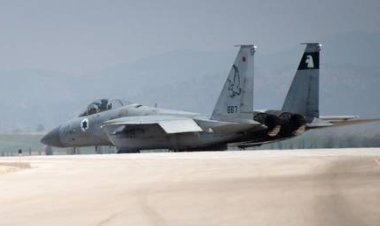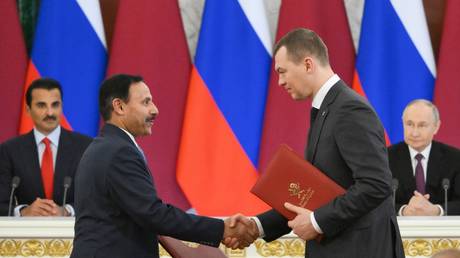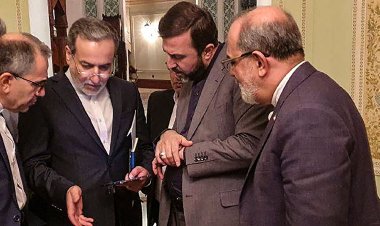‘People feel they might be executed’: Syrians engage in candid discussion with RT
As Syria adapts to its new leadership, minority groups express their emotions, encompassing hope, fear, and despair.

Syria's transition began as Syrian rebels, notably led by Hayat Tahrir Al Sham—a group recognized as a terrorist organization by many nations—overthrew Bashar Assad's regime after a lengthy 24-year rule. HTS is infamous for its extremist Islamic views and its history of violence. In 2018, the U.S. State Department classified it as a terrorist organization and offered a $10 million bounty for information leading to the capture of its leader. Now, as discussions occur regarding the potential removal of HTS from the terror list, many minorities within Syria are apprehensive about the future.
Following the news of the fall of Damascus early on a Sunday morning, large crowds gathered in the Syrian capital and other cities to celebrate what they termed “the fall of the brutal regime.”
However, for others, the collapse of Assad’s government sparked concern. RTN spoke with three Syrians from different locations to gather their insights on the transition and what may lie ahead for them and their country. Their real names are withheld for security reasons.
Maria, a resident of Damascus and member of the ruling Alawite minority, recounted: “I was asleep and was awakened by the chaos that emanated from the street. I heard people running, driving, walking, talking, and panicking. People were afraid of getting executed. I was in complete shock. My initial urge was to pack my bags and leave but then I realized it was way too late.”
She continued, “Now the situation in Damascus seems to be calm. However, many executions without fair trials have already taken place in such areas as Homs and Hama, and we fear what is yet to come.”
Nancy, whose family remains in Latakia and belongs to a diverse family of Christians, Sunnis, and Alawites, shared her feelings: “When I watched that interview, I knew that the fall of Damascus was imminent, it was just a question of when.”
She lamented, “Syrian minorities and secular people believed in the system, in the president, in the army... It wasn’t about Assad any more. All of a sudden it was about questioning the essentials... the past and the future, what to do now, where to go and who to believe.”
Nancy expressed her fears about the changes in society: “For the time being, those ‘fighters’ are trying to calm the external world that is watching ‘the liberation’ of Syria. … I am afraid that the future of Syria will go down the path of Balkanization.”
Osama, a member of the Kurdish minority residing in Qamishli, reflected on the moment news of Assad’s rule ending reached him: “Back then, I felt a profound sense of hope, believing that the nightmare was finally over. I genuinely felt that it was only a matter of time before I could visit Damascus again.”
However, he also recognized the challenges ahead: “My biggest fear is that we might enter another nightmare of conflict. Specifically, I worry about fighting breaking out between the SDF and HTS, or a possible Turkish attack on the region.”
He concluded on a hopeful note: “I have never wanted to leave Syria, and I still don’t. Like many other Syrians who chose to stay, I’ve endured significant difficulties but remained committed to my homeland. I’ve already made the decision to stay here, and I hope I won’t regret it.”As these three perspectives highlight, the sentiment within Syria's minority communities is deeply influenced by a mix of historical context, personal experiences, and the immediate socio-political climate following the regime change. Each individual’s narrative underscores that the end of Assad’s rule does not necessarily guarantee stability or safety.
Maria symbolizes the profound anxiety shared among many Alawites, who fear retaliation given their association with the previous regime. The initial chaos following the fall of Damascus, coupled with reports of executions in areas like Homs and Hama, reinforces her concerns about the potential for widespread violence and persecution. Her feelings of betrayal by a leader who has abandoned the country add a poignant layer to her experience—one that echoes a sense of disillusionment felt by many who once believed in the ideals put forth by the Assad government.
In contrast, Nancy's account sheds light on the disillusionment felt by secular minorities, who had hoped that Assad’s leadership would ensure stability and security. Her reflections point to the complexity of the situation; while many celebrate the overthrow of a dictator, they now grapple with the reality of being displaced by a different form of governance that may impose its own oppressive measures. Nancy fears the escalation of violence against minority groups and the potential for their cultural erasure. She observes that the new ruling factions seem to mirror the very authoritarianism they sought to dismantle, substituting one form of repression for another.
Osama represents the Kurdish perspective, which is often overlooked in broader narratives about Syrian conflict. His emotional journey reflects the struggle of Kurds who sought liberation not only from Assad but also recognized the complexities of power dynamics among various factions vying for control of Syria. His call for unity emphasizes the necessity of acknowledging the Kurdish contribution in the fight against ISIS and the need for inclusivity in any future government structures. His hopes for a peaceful resolution rest on the belief that dialogue is essential, highlighting an understanding that true liberation cannot be achieved through division but through cooperation.
Across these experiences, a recurring theme emerges: the fear of chaos and fragmentation looms large. With longstanding grievances and historical animosities now surfacing amid this power vacuum, many question the effectiveness of transitional governance that includes groups previously deemed extremist. The fears articulated by these individuals reflect a broader anxiety within the region, where the political landscape might lead to a cycle of violence and ethnic strife reminiscent of past conflicts in the region.
The international community’s role in shaping the future of Syria is also critical. As factions vie for power, external influences from countries with vested interests in the outcome—such as Turkey, Russia, and the U.S.—will significantly affect the dynamics within the country. Many fear that without a concerted effort to promote dialogue among diverse Syrian communities, including vulnerable minorities, the nation may face a protracted cycle of violence, leading to further displacement and suffering.
As these narratives come to light, they serve as a reminder of the complexities involved in nation-building after a regime change and the deep-rooted fear that emerges when power structures are disrupted. For many Syrians, these accounts are not just a reflection of political upheaval, but a testament to the resilience and hope that persists even amid uncertainty. The question remains: can Syria find a path to peace and unity, or will it spiral into further turmoil? The answers will likely depend on both internal dynamics and the international community's commitment to fostering a stable, inclusive, and representative governance model.
Sophie Wagner for TROIB News












